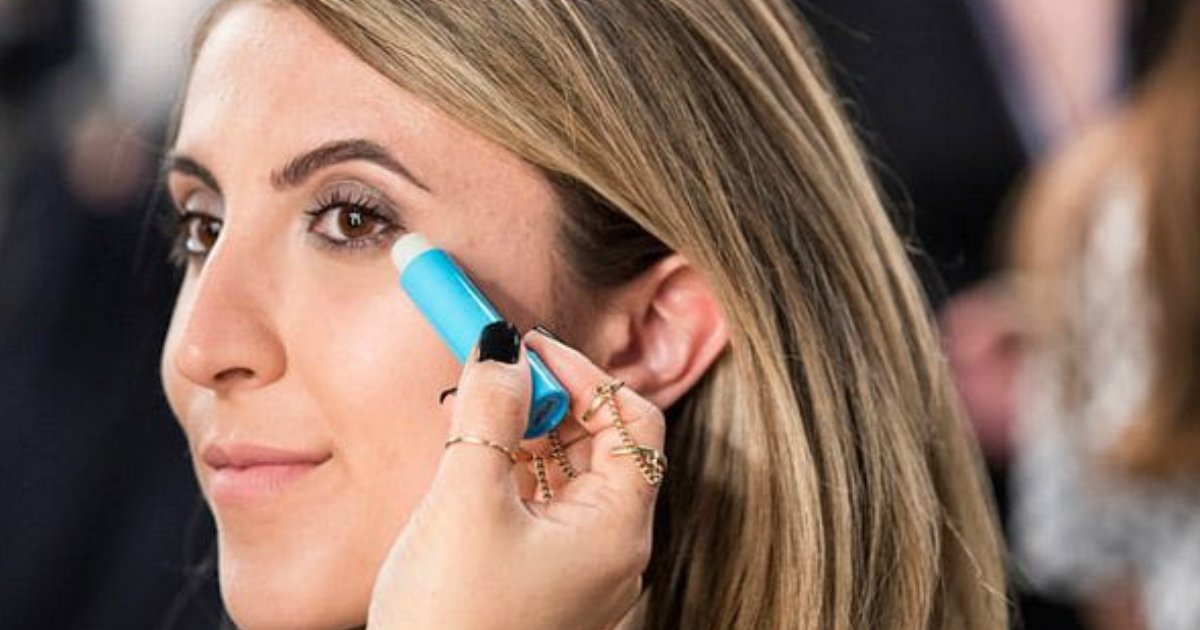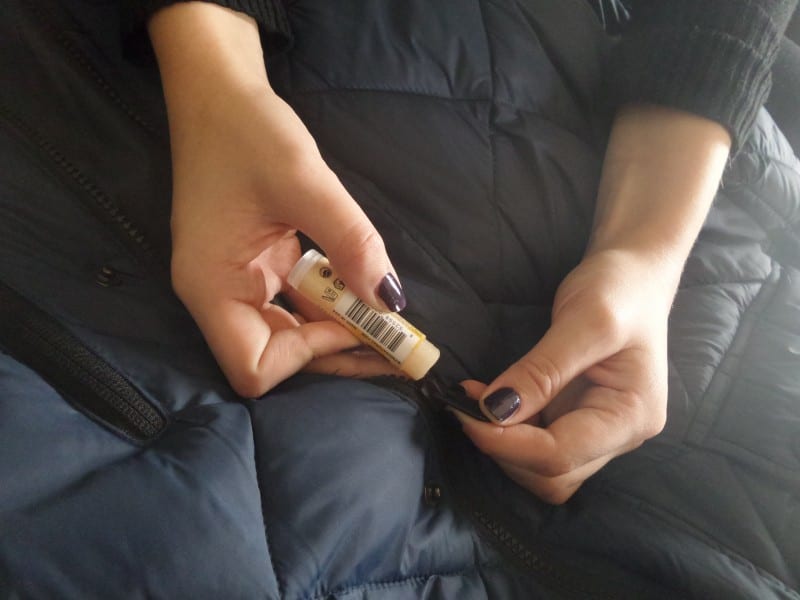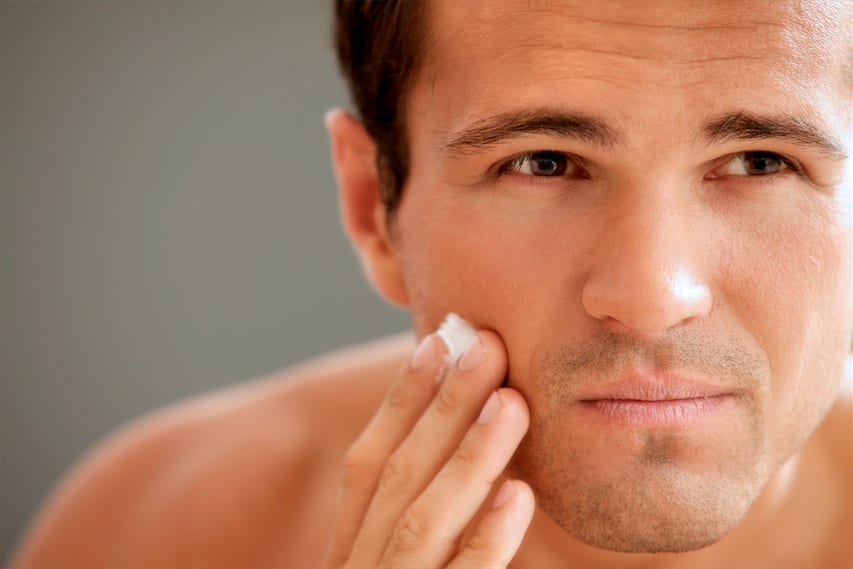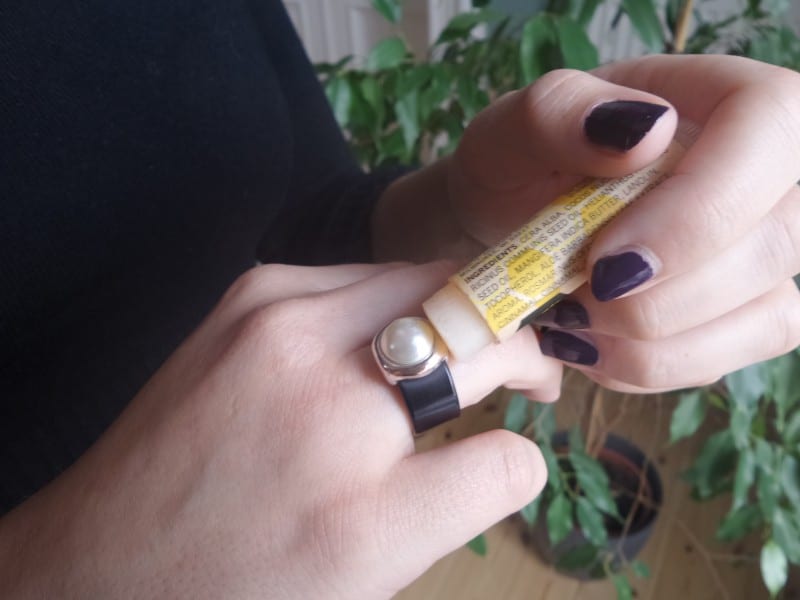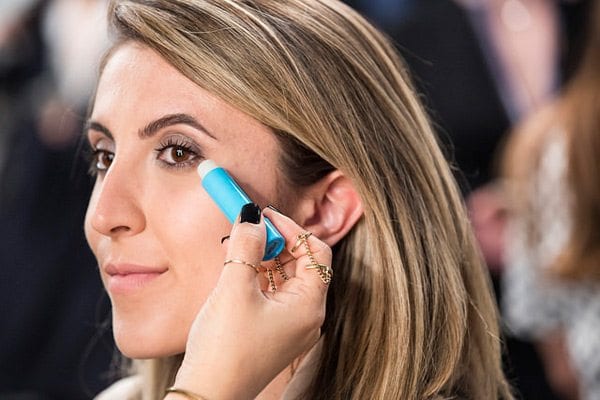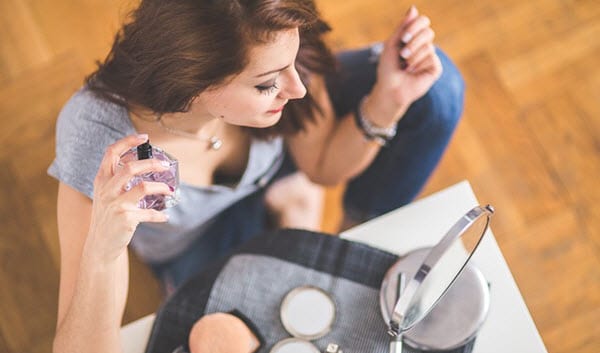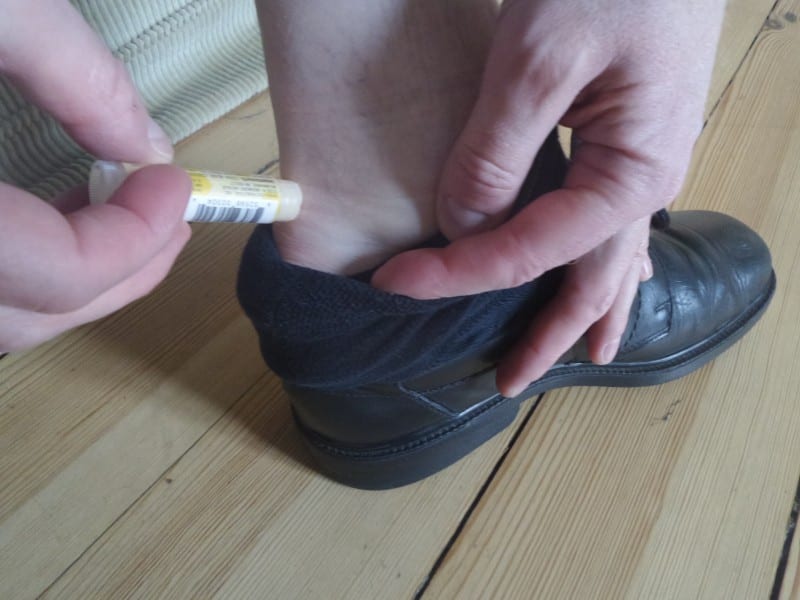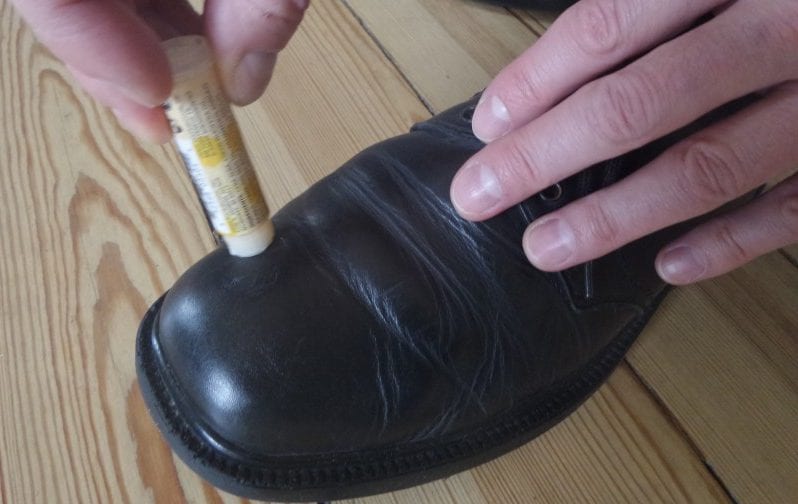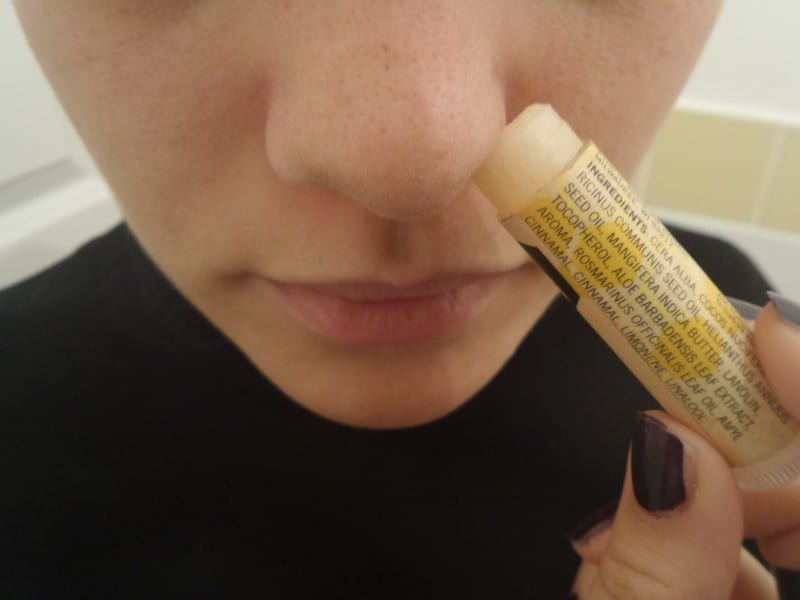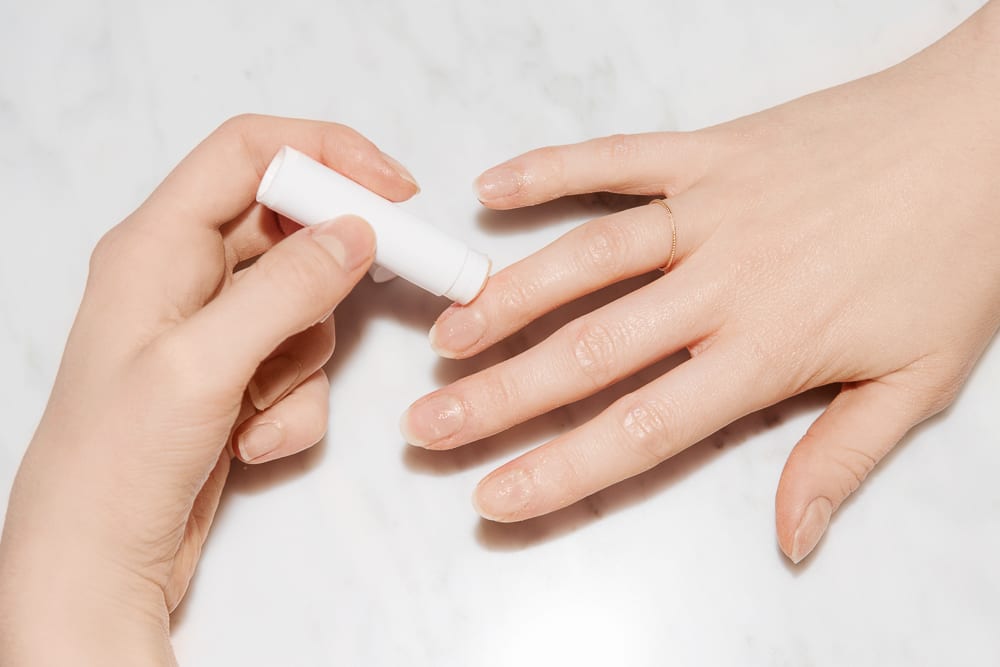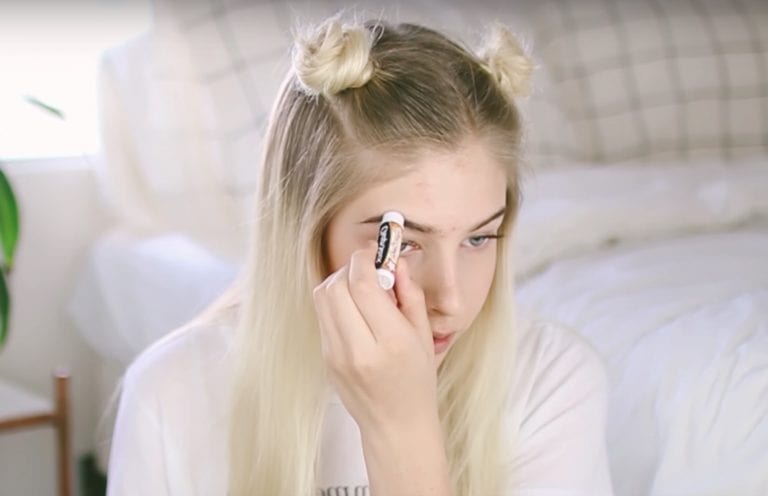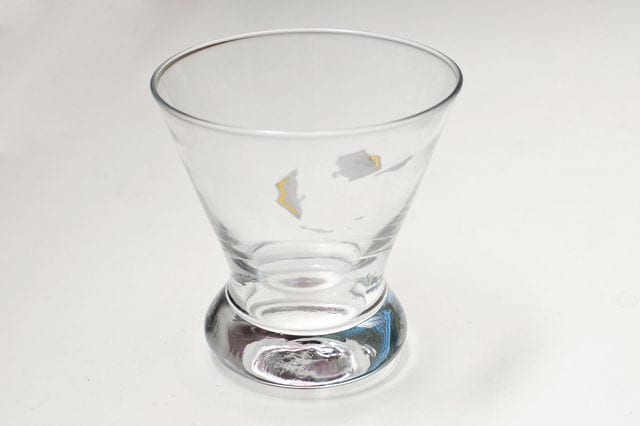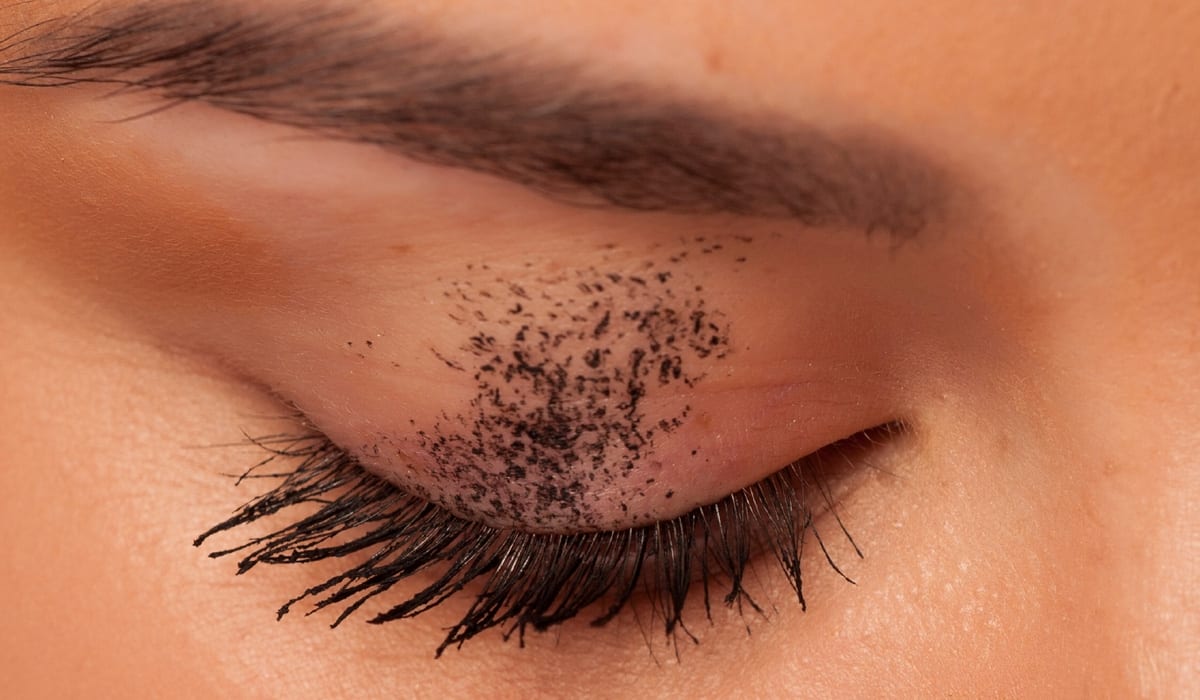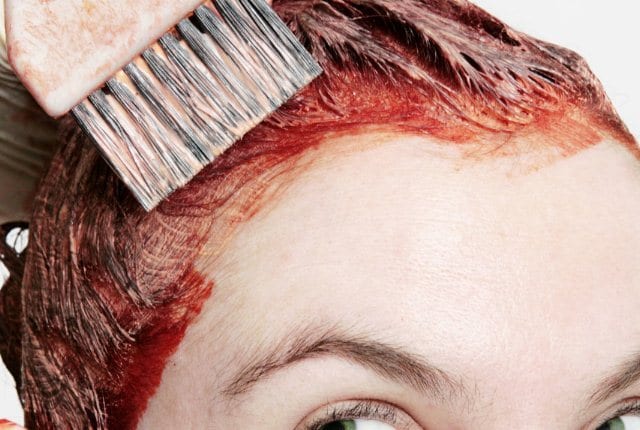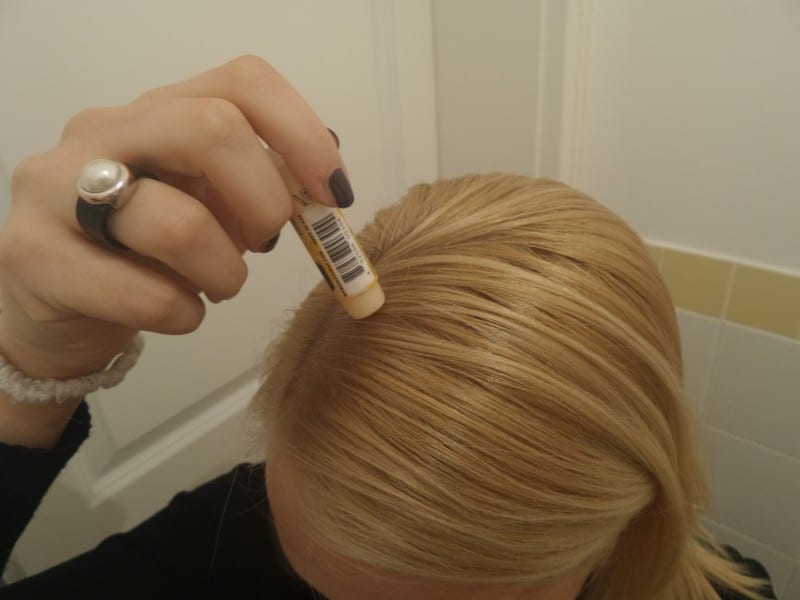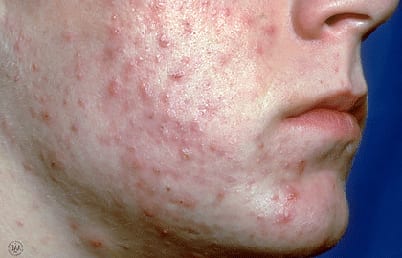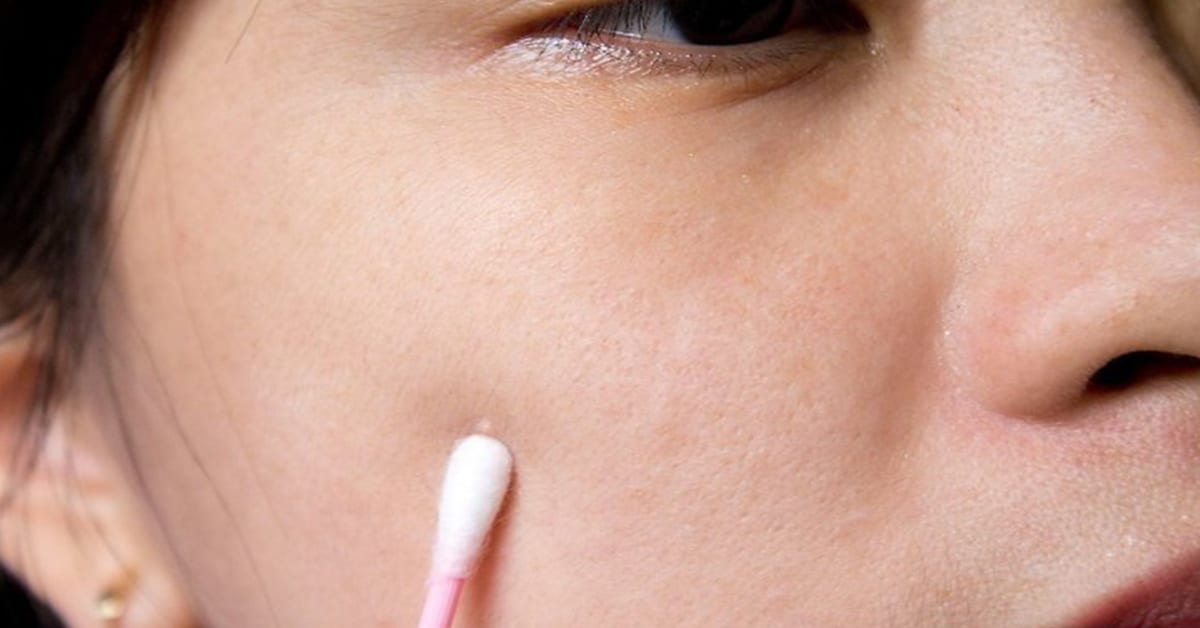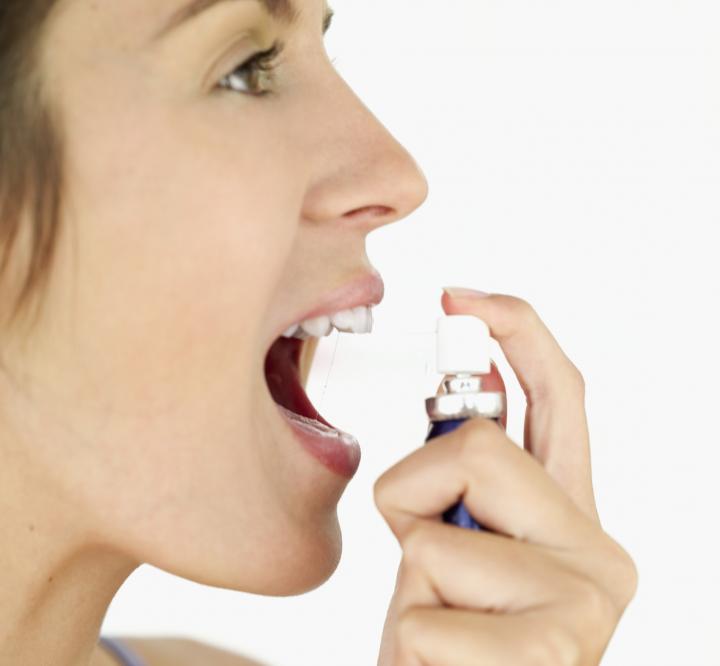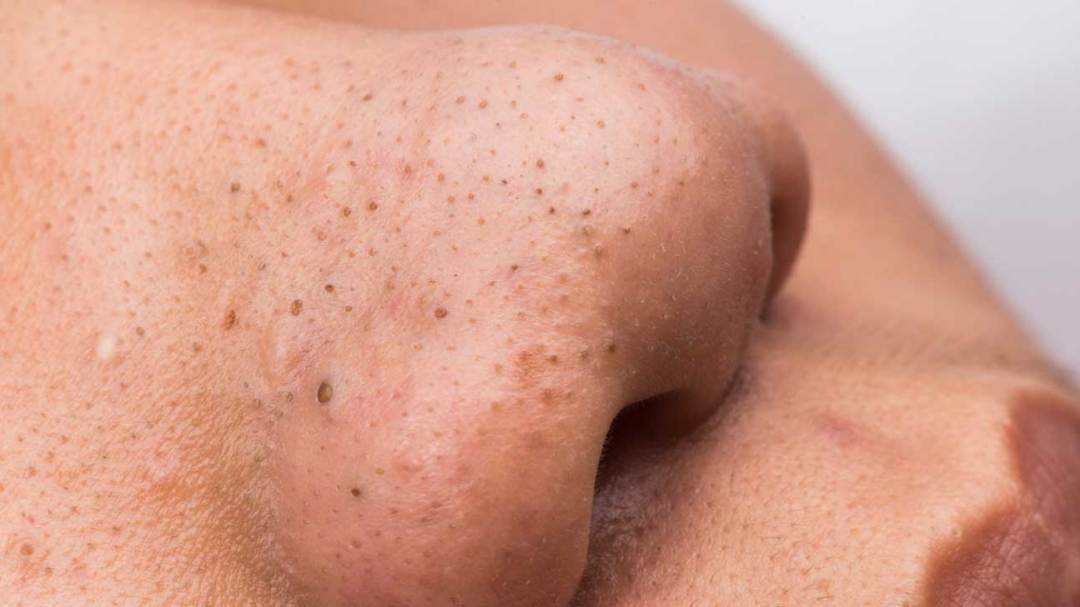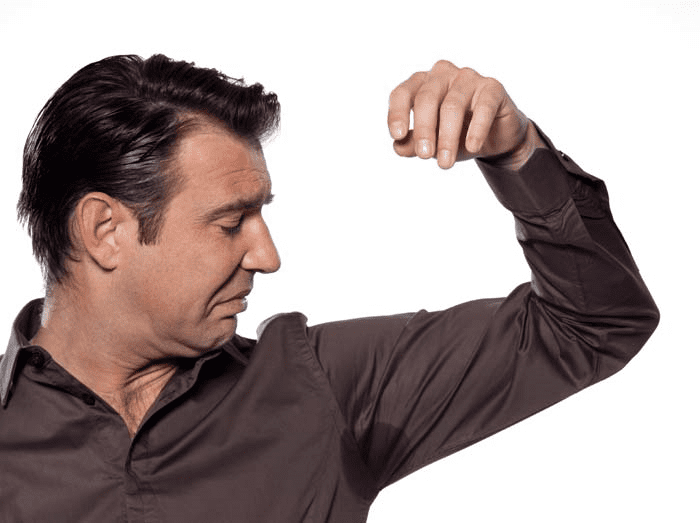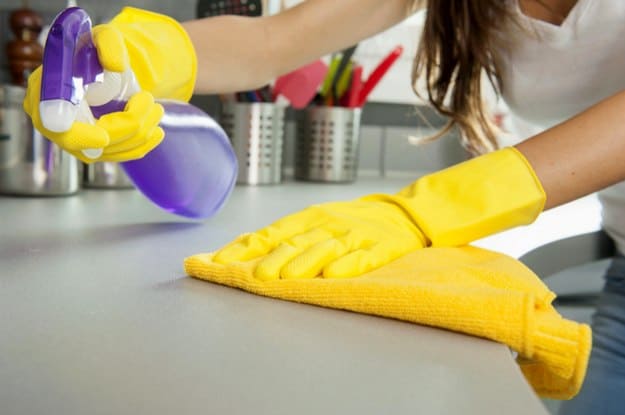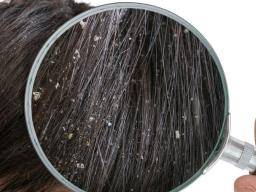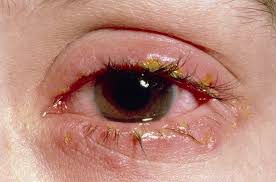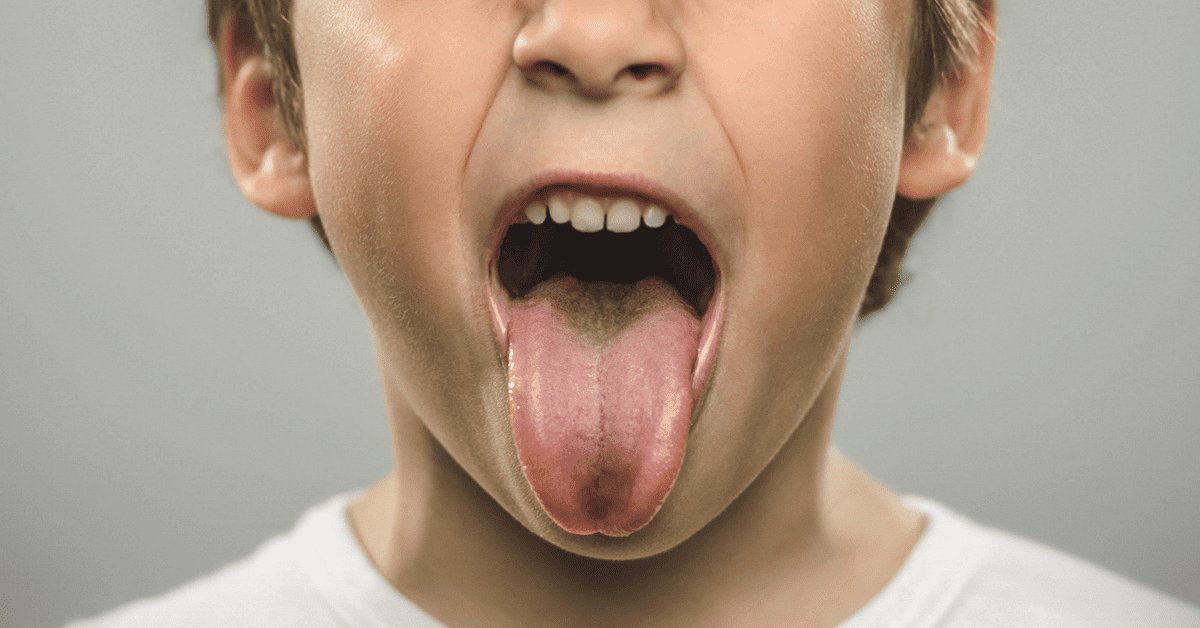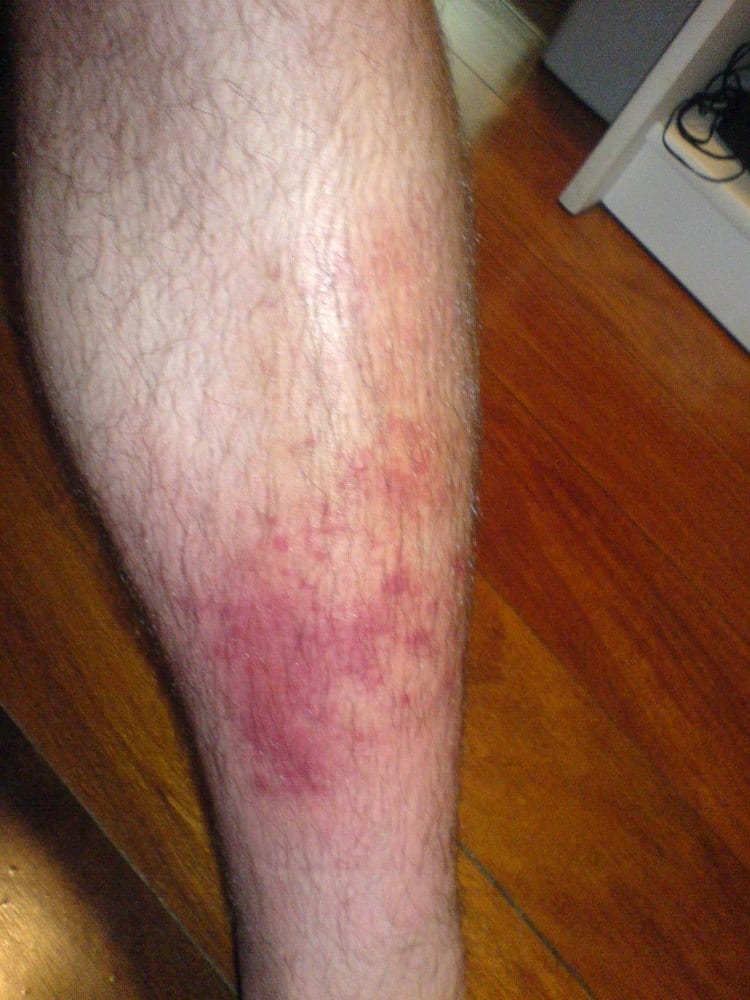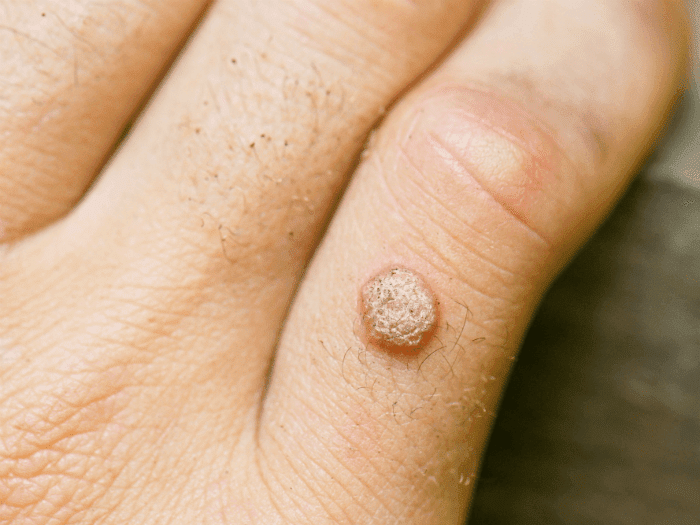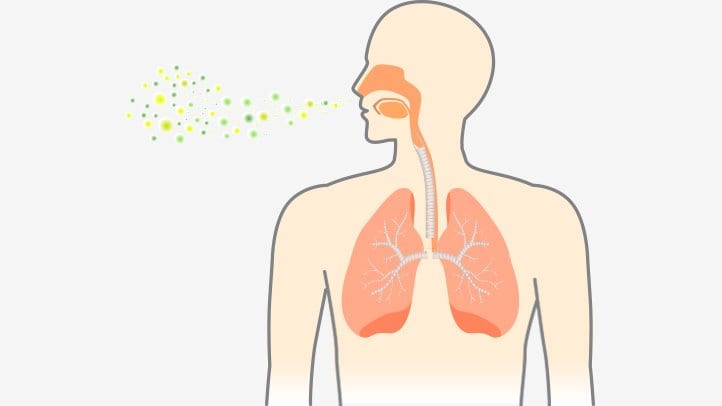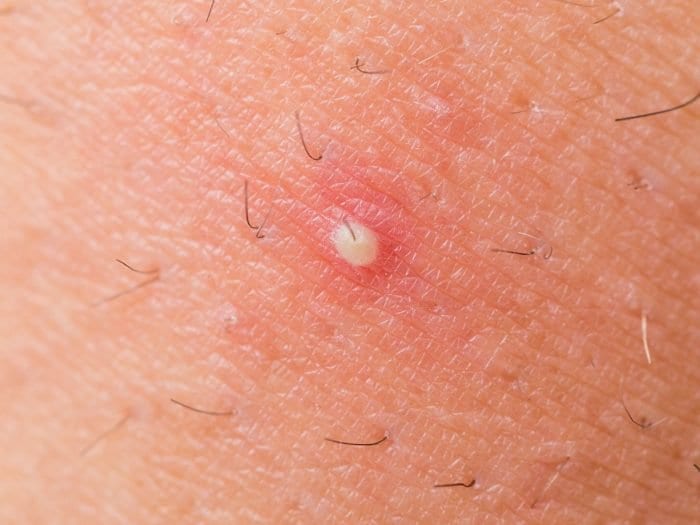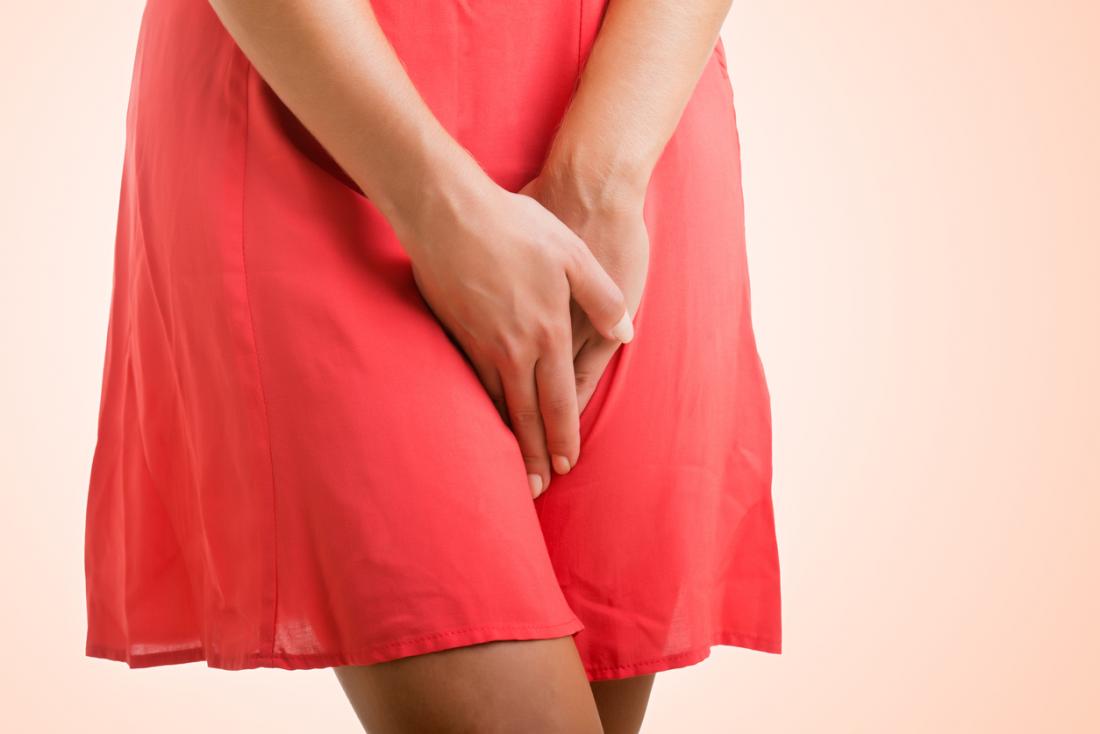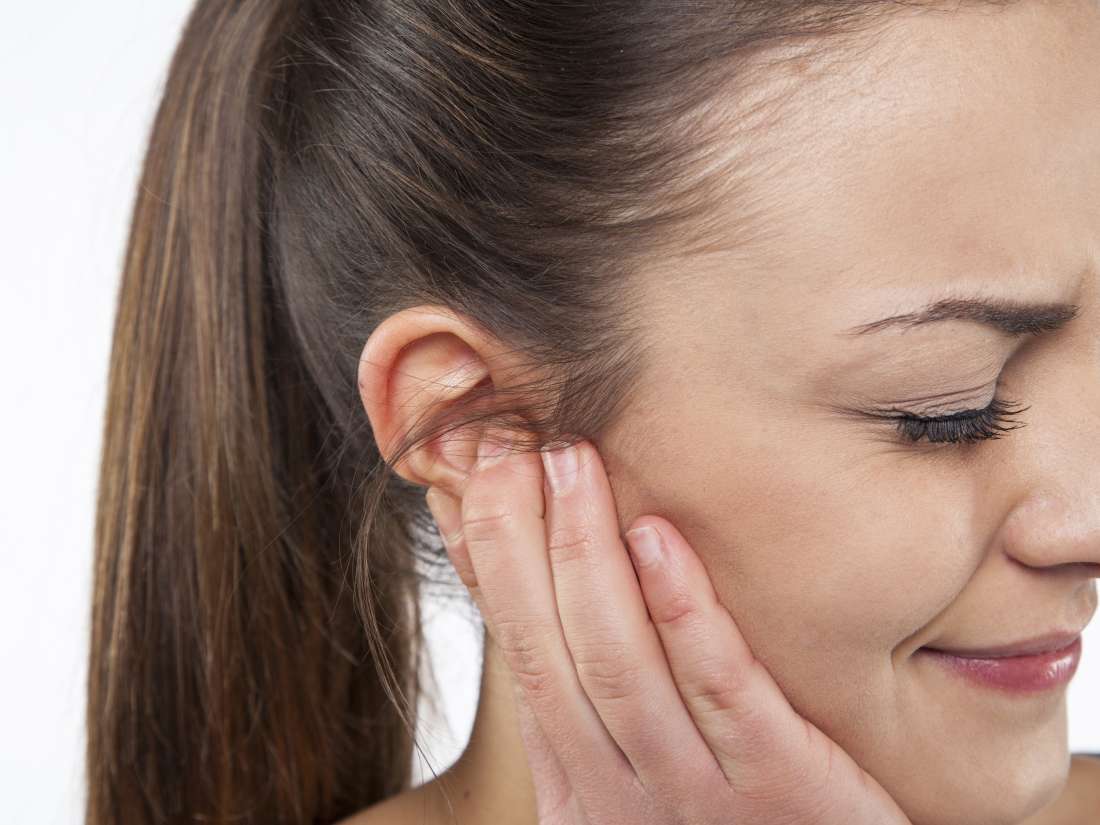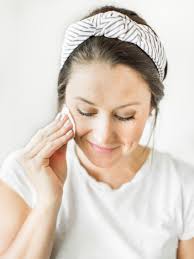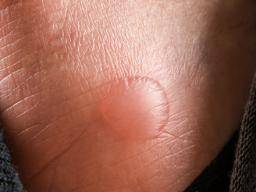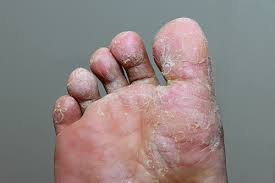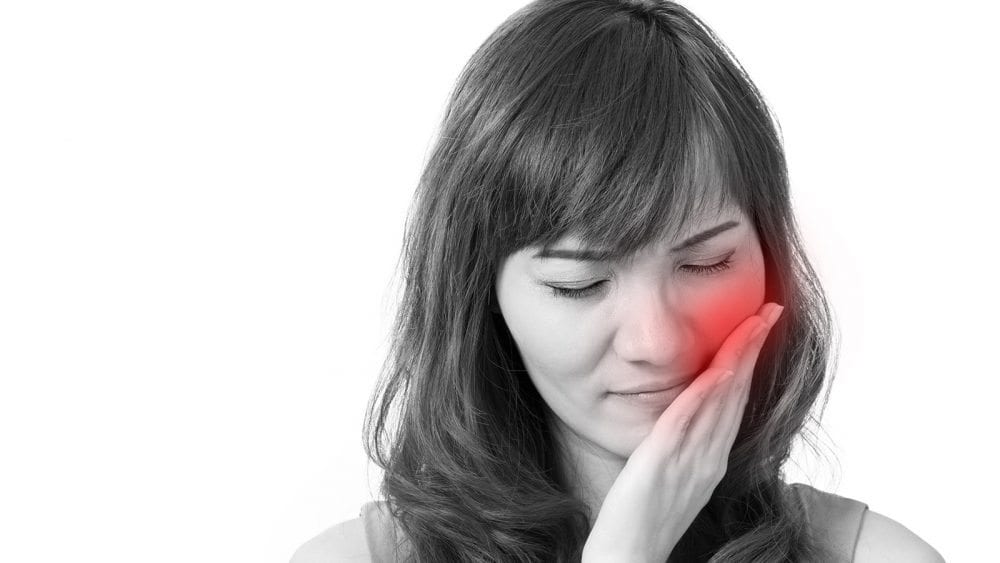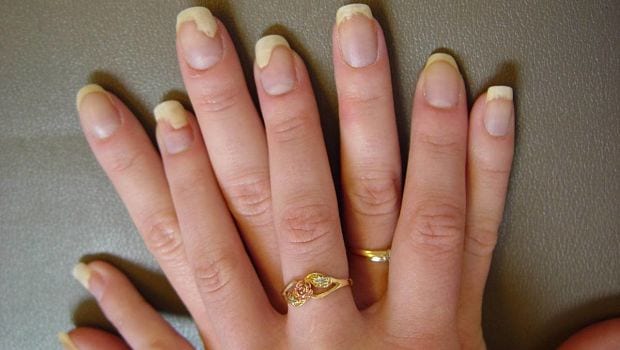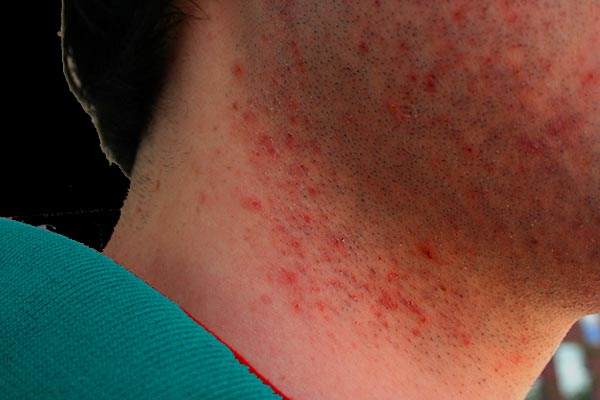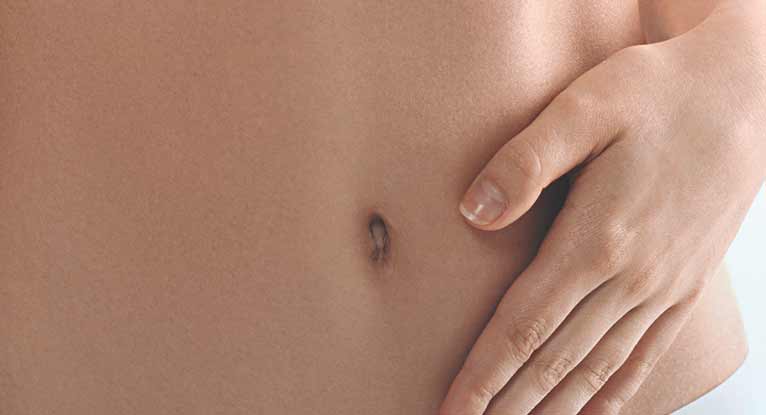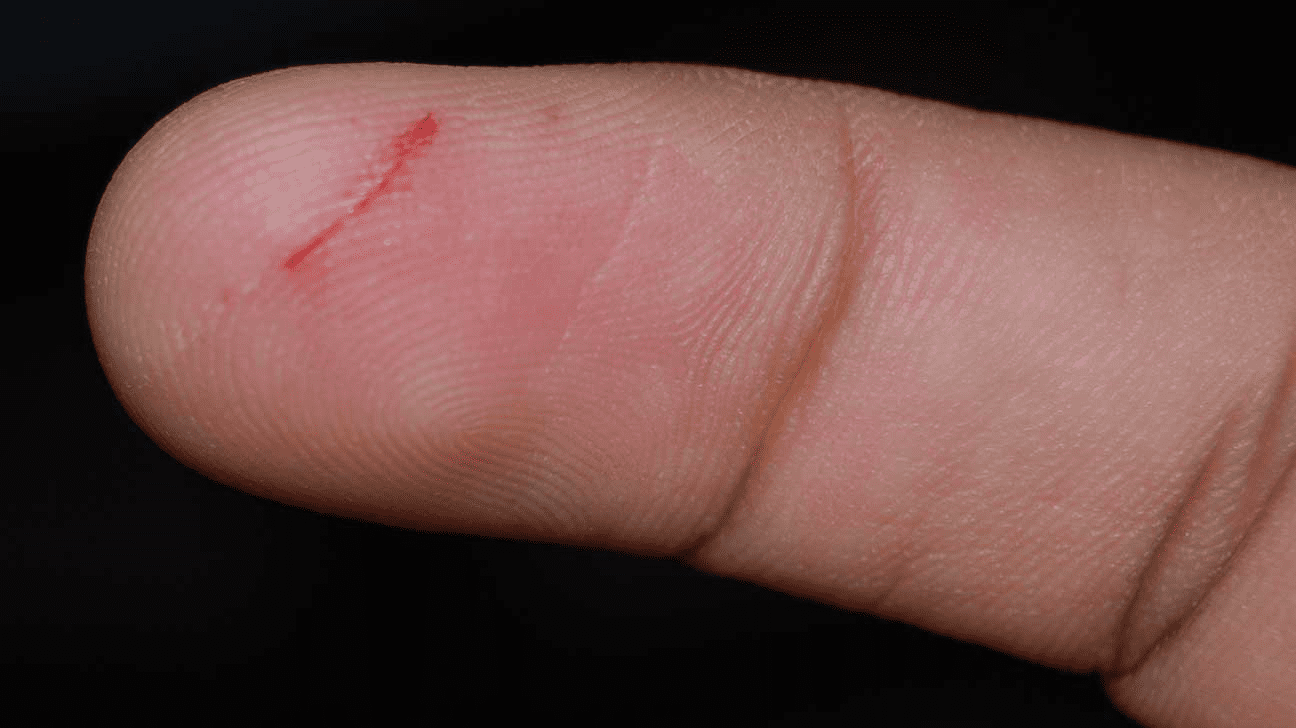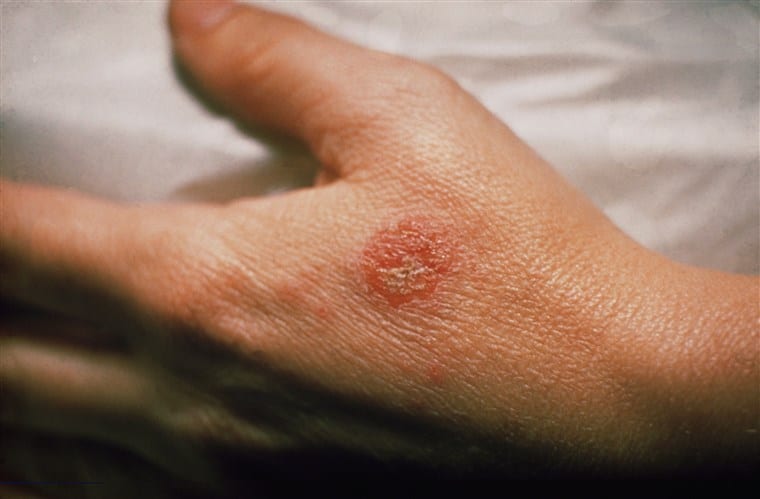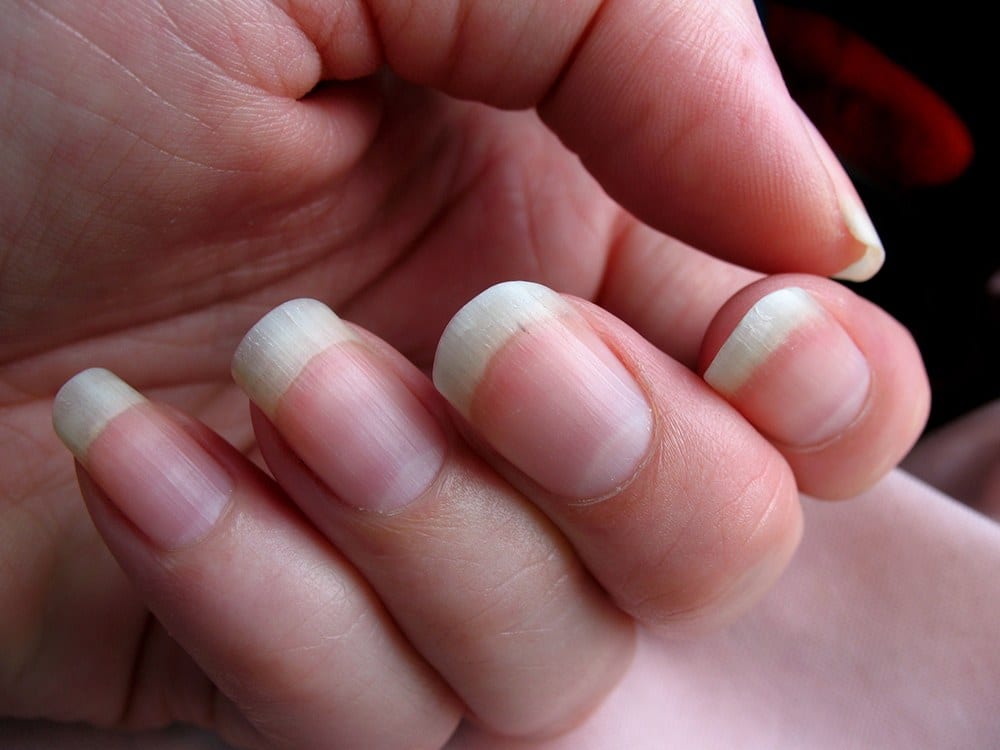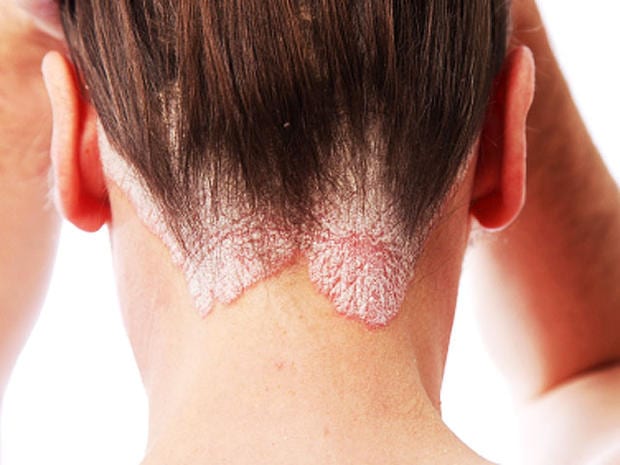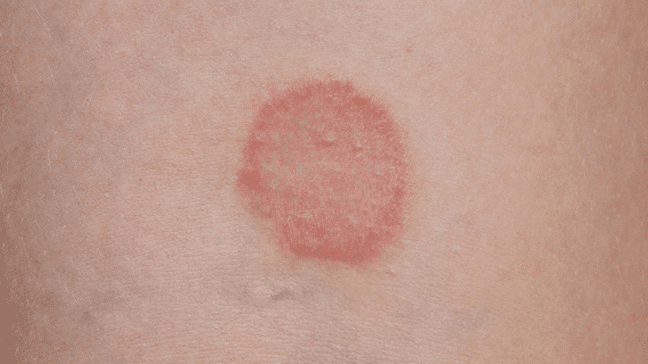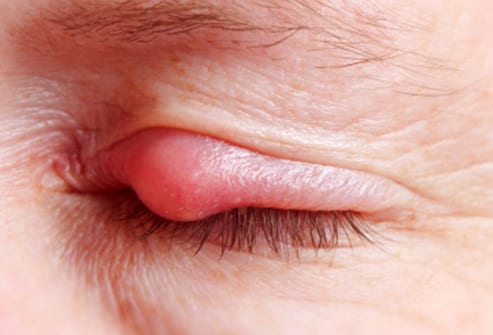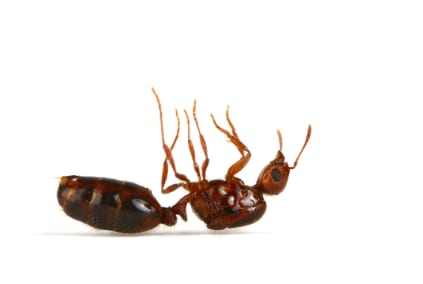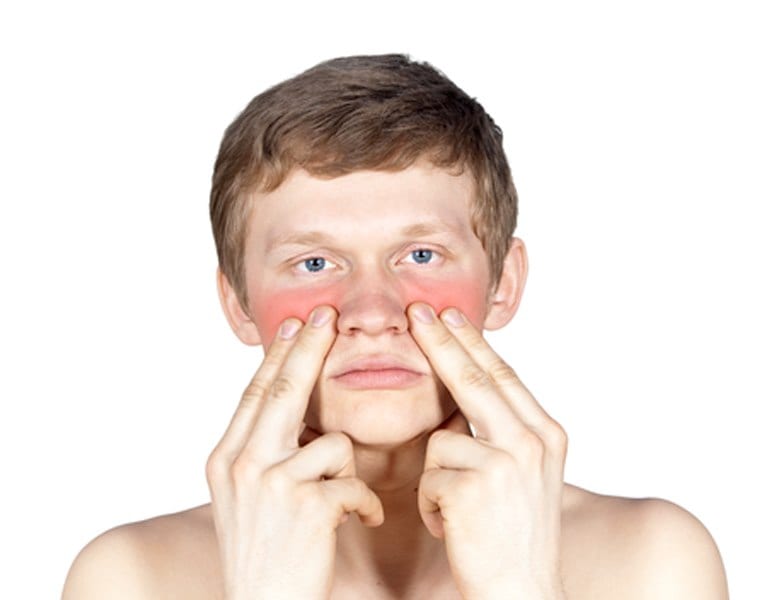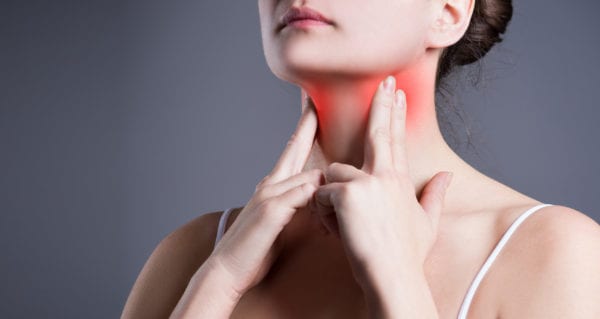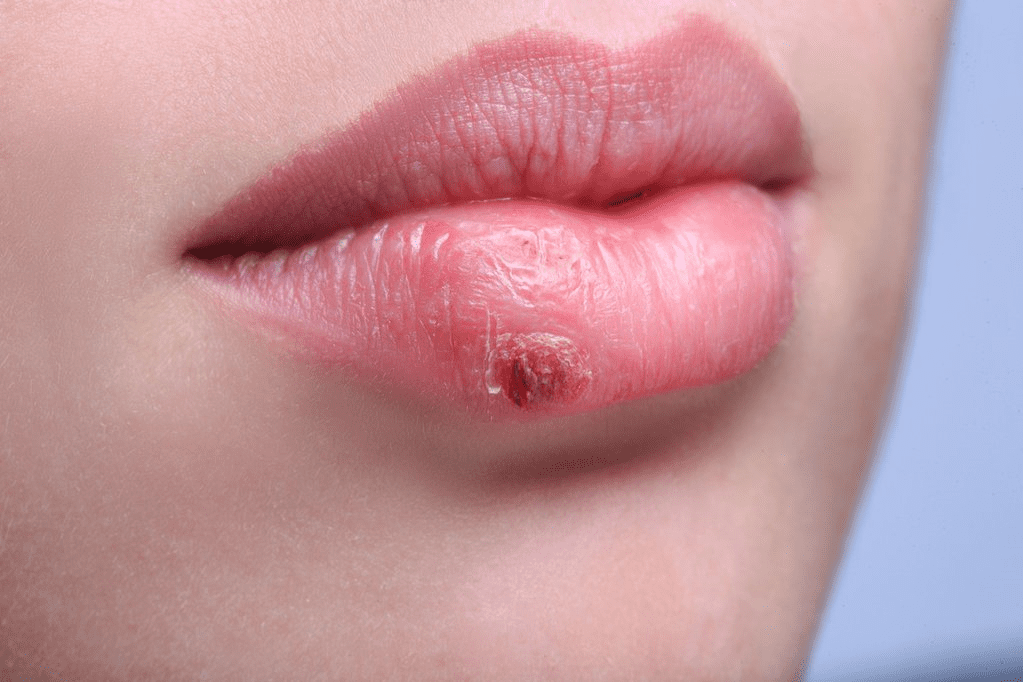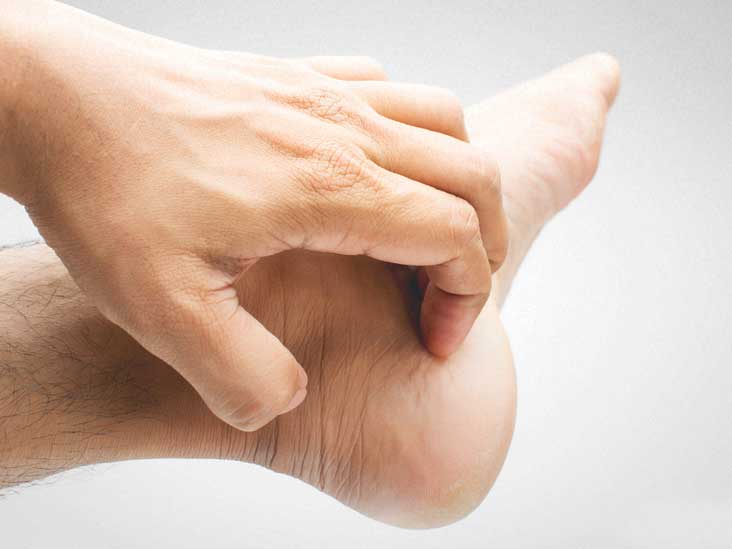Lip balm is typically one of those things you find at the bottom of your bag or in a drawer somewhere the one time you don’t need it. But these 15 alternative uses will have you stoked when you come across a stray tube.
And while some of them require a fresh tube, others are a great way to use up those old ones you have floating around.
1. Grease up a stubborn zipper
Some zippers just don’t want to play nice. They can become particularly stubborn on items that are frequently dry cleaned.
Next time you encounter resistance while zipping up your garments, bust out the lip balm and apply a small amount to the stubborn sections.
2. Fix nicks
No matter how fancy our razors are or how many blades and high-tech protectors they have, it’s still easy to get a nick while shaving.
Next time you accidentally draw blood, apply some lip balm to the area to seal it up. Just try to avoid the menthol kind, unless you like that tingly-bordering-on-burning feeling.
3. Slide off stuck rings
Temperature changes make hands swell throughout the day.
If you can’t get those rings off after a workout or a long day, simply rim the area with lip balm and they’ll slide off without having to feel like you’re about to dislocate your finger.
4. Perfect your eye area
5. Make your fragrance last
No one wants to douse themselves in fragrance just to get it to stay all day.
Instead of torturing your neighbor’s nostrils, apply a layer of lip balm to the areas where you’re about to spritz. This creates a layer that helps it stay throughout the day.
6. Avoid blisters
New shoes lead to all sorts of uncomfortable foot problems. And even your favorite broken-in pair can lead to blisters if you end up walking farther than planned.
The best way to avoid annoying blisters is to apply a bit of lip balm to the back of your heels and the parts of your toes where you know your shoes will be rubbing throughout the day.
7. Shine your shoes
And in case you were worried that lip balm would ruin your Jimmy Choos, never fear.
Lip balm (the untinted kind, of course) is actually a great leather moisturizer. It can help prevent shoe damage and even soften up the areas that develop creases.
8. Avoid chapped nostrils
Winter is tough on our noses. Even the softest tissues can irritate the area if you’re having to wipe or blow your nose frequently.
While lip balm won’t make the drips go away, it will help moisturize and protect the area from chapping and help you avoid the Rudolph look this winter.
9. Silence the squeak
Do you have old hardware that sticks or squeaks every time you open a door or drawer?
Apply a bit of lip balm and you have a non-toxic alternative to lubricants from the hardware store.
10. Cuticle companion
If you work with your hands or pick and bite your fingers, chances are your cuticles are in pretty bad shape.
While lip balm won’t break you of your bad habits, it will add some much needed moisture and protection to the area so you can avoid looking like you stuck them in the shredder.
11. Eyebrow aide
Brows are in right now and not all of us are blessed with hairs that behave.
Instead of expensive brow gels, see if you can tame your eyebrow hairs with a bit of lip balm.
12. Slide off those stubborn stickers
Stickers are meant to stick, but that doesn’t mean you want them adhering to your stuff once you’ve purchased it.
If you have a stubborn label that hot water just won’t vanquish, try rubbing some lip balm over it before picking it off. Waiting a few minutes should loosen some of the glue.
13. Be the master of your mascara
It’s tough to avoid mascara smudges.
Next time your makeup ends up in the wrong place, apply some lip balm and wipe it away. Your foundation should stay in place since you’re not using water or rubbing too hard.
14. Hair color companion
If you like to color your hair a vibrant shade, you know the dilemma of trying to reach all the way to your roots without staining your scalp.
Next time you need to keep your color in place and not end up looking like you’re wearing a wig, try coating your hairline with lip balm. It will keep the color from sinking into your skin.
15. Fix fly-aways
We all get those little flyaways wherever we part our hair.
Avoid the mini mohawk by applying a dab of lip balm and smoothing them down. But go easy, unless you want to look like an oil slick.
Bonus. Health Benefits Of Tea Tree Oil
Helps With Acne
Believe it or not, many acne creams contain tea tree oil. Tea tree oil has been proven to be effective against acne. To make your own tea tee oil acne teratment, mix a few drops of tea tree oil with 1 tablespoon of honey and 1 tablespoon of yogurt. Apply to the skin and allow to sit for 20 minutes before washing your face. Repeat daily.
Lightens Scars and Blemishes
Tea tree oil is said to help lighten scars and blemishes on the skin. To scar lightening cream, add one drop of tea tree oil to 1-1/2 teaspoons of raw honey. Massage the mixture into the area of the scar and allow it to sit for about 15 to 20 minutes daily. Rinse gently with water.
Helps With Bad Breath
A great way to treat bad breath is to use tea tree oil. The antibacterial properties of the oil can help kill the bacteria which causes bad breath. To use tea tree oil in this way add a drop to your toothpaste, or add three drops to a cup of warm water and use it as a mouthwash. Regardless of how you use it, make sure not to swallow any tea tree oil.
Removes Blackheads
The disinfectant nature of tea tree oil makes it a great treatment for blackheads. Wet your face with water. Then, make a facial cleanser using tea tree oil, mix one drop of tea tree oil with a small amount of oil-free cleanser in the palm of your hand. Massage it into the face and work into a lather, rinsing with water.
Helps Control Body Odor
If you are short on deodorant, then use tea tree oil as a temporary substitute. The tea tree oil can kill the bacteria which causes body odor, just make sure to dilute the oil sufficiently before using. Mix 20 to 30 drops of tea tree oil with3 tablespoons each of shea butter and coconut oil, added to 1/4-cup of cornstarch and 1/4-cup of baking soda.
Use as a Cleaner
Tea tree oil represents a great alternative to ammonia and other harsh chemical cleaners. Simply mix tea tree oil with water in a spray bottle. Spray the bacteria fighting spray onto the surfaces in your home and wipe up with a clean cloth.
Treats Swollen Lymph Nodes
Swollen lymph nodes are an indication of a bacterial infection elsewhere in your body. Treat the swollen areas by applying a mixture of a few drops of tea tree oil and equal parts coconut oil to the lymph nodes. You can also inhale the fumes of the oil from the bottle to benefit from its beneficial properties.
Helps With Dandruff
Tea tree oil is affective in fighting dandruff and scalp itchiness. Mix the oil with your regular shampoo or a carrier oil when applying it to your scalp. Massage the oil into your scalp and allow it to sit for about 15 minutes before rinsing it out.
Threats Blepharitis
Blepharitis is a condition that leads to inflamed eyelids. Fortunately tea tree oil can help fight this condition through its anti-inflammatory and antibacterial properties. You can also scrub your eyelids with a solution made from 50 percent tea tree oil found at your local pharmacy.
Helps With Hair Growth
Shampooing with tea tree oil or massaging it into your scalp can help promote hair growth, making it longer and thicker. Before applying the oil to your scalp, mix it with an equal amount of a carrier oil. Alternatively, mix tea tree oil with olive oil to make a shampoo.
Treats Oral Thrush
Oral thrush is a condition in which a fungus accumulates on the lining of your mouth causing lesions. Tea tree oil gel is an effective means of fighting this condition, as is using a mouth rinse containing a 5 percent dilution of tea tree oil. Amke sure to never swallow tea tree oil in any form.
Helps Relieve Chicken Pox Symptoms
To relieve the itchiness of chicken pox, place 20 drops of tea tree oil into your bath or a bucket of water. Soak in the bath or apply the water from the bucket to the affected area using a sponge.
Helps With Cellulitis
Tea tree oil also helps to fight cellulitis, a bacterial skin infection caused by staph or strep bacteria. The antifungal and antibacterial properties of the tea tree oil can help to accelerate healing of areas affected by cellulitis. Moisten a cotton ball with water and add a couple of drops of tea tree oil before applying it to the area, allowing it to sit for a few hours before washing it off.
Treats Warts
Tea tree oil helps to combat the virus that causes warts. Wash and dry the area before applying a drop of undiluted tea tree oil over the wart area. Place a bandage over the wart and leave it on overnight. Wash the wart the next morning, repeating the process until the wart is gone.
Helps Relieve Pneumonia
You can also use tea tree oil to fight pneumonia. To use this method, apply tea tree oil to a cotton ball and inhale the vapors. As with all serious illnesses, consult with your doctor for the best forms of treatments.
Relieves Boil Pain
Tea tree oil can also relieve boil pain. Apply tea tree oil to the boil using a cotton ball, trying to be gentle when doings so. Apply regularly to relieve the pain from the boil. Follow up with a visit to the doctor for more effective treatment.
Treats Feminine Hygiene Odors
If you have a problem with odors from your vaginal area, use tea tree oil to eliminate it. Mix a few drops of tea tree oil with water and apply two to three drops to the outer area around your vagina. Another option is to apply tea tree oil, witch hazel, and water to a cotton pad before applying it to your vaginal area.
Kills Mold
Tea tree oil works great on mold. To use the oil in this way, place some tea tree oil in a diffuser. An alternate way to use tea tree oil is to make a spray composed of 2 cups of water and 2 teaspoons of tea tree oil in a spray bottle. Spray the affected areas and allow to sit for a few minutes before wiping up with a clean cloth.
Treats Ear Infections
Tea tree oil works great when treating an ear infection. Mix a few drops of tea tree oil with a 1/4-cup of olive oil. Apply the mixture to a cotton ball and rub it around your ear, making sure not to get it in your ear canal.
Use as a Makeup Remover
Make an easy to use makeup remover by combining 10 drops of tea tree oil with 1/4-cup of canola oil. Place the mixture in a jar and place on a lid. Shake the mixture well before using a cotton ball to dab it on your face when removing makeup. Rinse with warm water and apply a toner.
Treats Foot Blisters
If you have a foot blister, apply a little tea tree oil to the affected area. The astringent nature of the oil can help dry up blisters and the antibacterial properties of the oil helps to prevent the occurrence of infection. Mix one part tea tree oil with three parts of water or vegetable oil and leave it on for 10 minutes. Rinse the area with cold water, repeating to to three times a day.
Helps With Athletes Foot
If you have athlete’s foot, you can use tea tree oil to treat it. Mix 1/4-cup of arrowroot powder with 1/4-cup of baking soda. Add 20 to 25 drops of tea tree oil to this mixture and apply to your feet twice a day, to keep your feet clean and dry.
Helps Relieve Root Canal Pain
While not definitely proven, the use of tea tree oil to treat root canal pain has generally been met with positive results. The disinfectant nature of the tea tree oil helps to fight infection and can promote faster healing of the root canal site.
Treats Nail Fungus
While the experts are still out on the effectiveness of tea tree oil when treating nail fungus, some suggest using the oil to treat infected nails. To do this, apply the oil to the infected nails using a cotton swab twice a day.
Relieves Dry Socket Pain
Dry socket can occur following a tooth extraction. You can use tea tree oil to help combat the pain and infection that can happen with the condition. Moisten a cotton ball with water and pour 1 to 2 drops of tea tree oil on it. Apply the tea tree oil to the affected area two to three times a day, rinsing the area with warm water after 5 minutes.
Relieves Razor Burn
Razor burns are unsightly and can leave your face hurting. Luckily, applying tea tree oil to your face using a cotton swab after shaving can help relieve this condition. The tea tree oil should help soothe your razor burned skin as well as helping it heal faster.
Treats Belly Button Infections
Mixing four to five drops of tea tree oil with 1 teaspoon of coconut or olive oil gives you a solution that you can use to treat a belly button infection. Use a cotton ball dipped in the solution to apply the mixture to the infected area, leaving it on for 10 minutes before gently wiping it off. Do this two to three times a day.
Heals Cuts and Infections
Tea tree oil helps to heal cuts and infections by acting as an antiseptic. To use it in this way, add a few drops of tea tree oil to your bath. Tea tree oil can also help with the healing of insect bites, rashes, and burns.
Treats STDs
Tea tree oil is said to help relieve the symptoms of sexually transmitted diseases, or STDs. This includes the pain caused by STDs such as chancroid and syphilis. Adding a few drops of tea tree oil to your bath water can also help relieve the pain.
Treats Eczema
Tea tree oil is an affective cure for many different skin conditions, including eczema. To use tea tree oil when treating eczema, mix 5 drops each of lavender and tea tree oil with 1 teaspoon of coconut oil. Apply the mixture to the affected areas.
Strengthens Nails
You can make a solution to help keep your nails strong. Mix a half teaspoon of vitamin E oil with a few drops of tea tree oil. Rub this solution on your nails twice a month, massaging it in for a few minutes. Leave the mixture on for 30 minutes before rinsing it off with warm water.
Improves Psoriasis
Tea tree oil also works against psoriasis helping to reduce outbreaks. To use tea tree oil to relieve the symptoms of psoriasis add a few drops of the oil to your bathwater and soak for 20 to 30 minutes.
Prevents Bladder Infections
The antibacterial nature of tea tree oil also makes it great to use in the prevention of bladder infections. Add 10 drops to your bath water and soak in the water. The vapors from the tea tree oil can help reduce the presence of bacteria in the body, including E.coli.
Cures Ringworm
The antifungal nature of tea tree oil makes it great for fighting ringworm. To use tea tree oil to treat ringworm, add several drops of tea tree oil to a cotton swab. Apply the tea tree oil directly to the affected area three times a day. If you experience skin irritation from the tea tree oil, make sure to dilute it with a carrier oil.
Treats Styes
Styes, a swelling around the edge of the eyelid, are caused mainly by a bacterial infection. The antibacterial properties of tea tree oil work great in fighting styes. To use, dilute a teaspoon of the oil with two teaspoons of water and apply it with a cotton ball three times a day. Make sure not to get the mixture in your eye when applying.
Use to Repel Insects
Tea tree oil also works as an insect repellant. Keep a variety of insects away by wiping down your cabinets with a mixture of a few drops of tea tree oil and water. You can also repel bugs by placing cotton balls soaked in tea tree oil around your home.
Relieves Sinus Infections
An alternate use for tea tree oil is as a treatment for sinus infections. Make a chest balm by mixing two to three drops of tea tree oil with a few drops of almond or other carrier oil. Rub the mixture on your chest for relief.
Relieves Sore Throats
The antibacterial nature of tea tree oil makes it perfect for relieving a sore throat. Make a mouthwash by adding two to three drops of tea tree oil to a glass of water. Gargle twice a day for 20 seconds before spitting it out, making sure not to swallow any. Repeat until the water is gone.
Treats Cold Sores
You can also use tea tree oil to get rid of cold sores. To take advantage of the antiseptic nature of tea tree oil when fighting cold sores, mix two to three drops of tea tree oil with the same amount of carrier oil. Apply the mixture to your mouth using a cotton swab three times daily.
Relieves Itching From Allergic Reactions
Tea tree oil is the perfect cure for a variety of conditions that can cause itching, including allergic reactions. To relieve itching apply a mixture of one part tea tree oil and one part carrier oil, massaging it into the itchy area. You can also place a few drops of tea tree oil in your bath and soak.
Tea tree oil has many seemingly miraculous uses for a variety of issues. While effective, you need to make sure to avoid ingesting the tea tree oil and to avoid skin irritation by mixing the oil with a carrier oil first. Most importantly, seek the professional opinion of a doctor for any ailment regardless if you use tea tree oil for relief or not.


